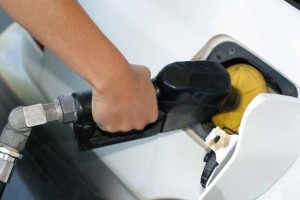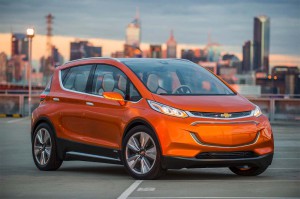Americans suck down a lot of oil, a large share of it to fuel the 260 million vehicles on U.S. roadways. But demand for gasoline is expected to start declining by 2019, according to a new study.
And the U.S. isn’t unique. The study by Scottish research firm WoodMackenzie predicts that even with global car sales on track to set new records well into the next decade, global oil demand should also peak as early as 2021.
That might come as a surprise considering the surge in vehicle demand in emerging markets like China and India, especially as motorists worldwide shift from passenger cars to crossovers and other light trucks. But the WoodMac study contends that these trends will be offset by stricter U.S. and global mileage standards, as well as more efficient vehicles, many using zero-emissions powertrain technologies.
The U.S. should hit peak consumption of gasoline next year, according to the report. That’s a notable turnaround considering the sharp upturn in consumption that followed the country’s emergence from its recent recession, and the recent collapse of oil prices. Last year, gasoline demand topped 9.32 million barrels a day.
(EV makers want to be fast, as well as energy efficient. Click Here to see who’s got the EV speed crown.)
WoodMac expects that to reach 9.45 million this year and go flat in 2018 before dropping to 9.28 million barrels in 2019.
“We expect gasoline engine efficiency to continue to improve through better deployment of batteries in hybrid vehicles,” WoodMac analyst Alan Gelder explained in the report.
U.S. motor vehicles saw a 5 mile per gallon increase in fuel efficiency from October 2007 through January of this year, notes a separate study by the University of Michigan’s Transportation Research Institute, or UMTRI. But that report raise questions about the WoodMac study because mileage has actually dipped 0.4 mpg since peaking in August 2014 at 25.5 miles per gallon.
The UMTRI study found that fuel efficiency fell another 0.1 mpg last month. That coincides with another surge in demand for SUVs, crossovers and pickups, which now account for about two of every three vehicles sold in the United States. During the depths of the recession, the vehicle mix was closer to 50/50 cars and light trucks.
The good news is that even those larger, generally heavier utes and pickups tend to be getting far better mileage than in the past, due to improved powertrain technology and other factors. The trend is generally expected to continue as automakers adopt more advanced engines, especially hybrids, plug-ins and pure battery-electric drivelines.
The caveat is that the Trump Administration has given signals it may go along with the auto industry request to curb the Corporate Average Fuel Economy standard currently set to reach 54.5 mpg in 2025.
(Will Trump Admin role back CAFE? Click Here for the latest.)
Other factors could impact peak gasoline demand, including the growth of the global car market – which WoodMac forecast will top 1 billion by 2025, a 10% surge from today. Some analysts believe that is short of the likely number, especially if India starts matching the growth rates seen in China. On the other hand, some analysts believe the arrival of autonomous vehicles, along with the growth of car-sharing services like Uber, could depress vehicle demand.
One way or the other, oil demand is expected to peak in the not-too-distant future. Reuter’s news service reports that Vitol, the world’s largest oil trader, now predicts this will happen in 2027 or 2028. Royal Dutch Shell, meanwhile, anticipates reaching peak oil demand in the 2030s.
(More worries for Tesla as it strains finances to launch Model 3. Find out more, Click Here.)



